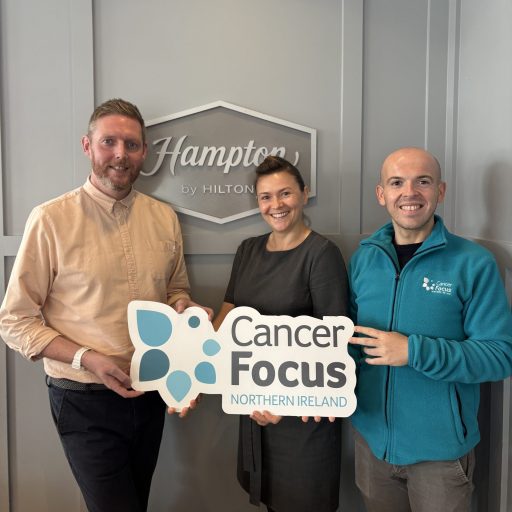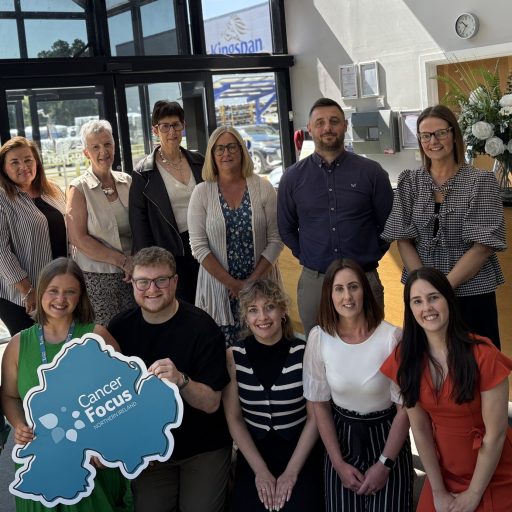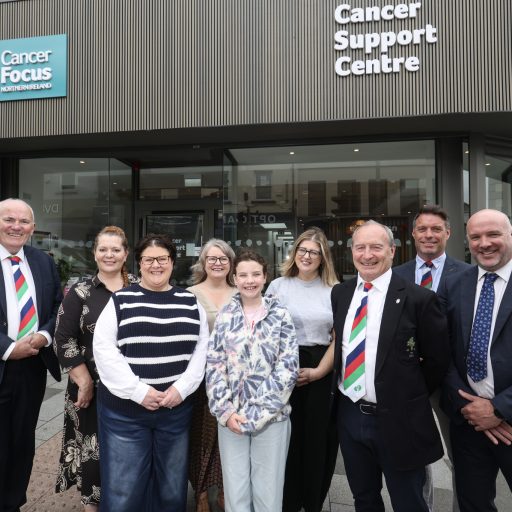
Cancer prevention and transformation needed to stop the deterioration of cancer waiting times, warns local cancer charity
The latest NI Cancer Waiting Times Statistics once again show delays in cancer treatments across the board. On an annual basis, the waiting times have been largely below target and worsening since at least 2012.
Published this morning from the NI Department of Health, the data covers patients accessing cancer services at hospitals in Northern Ireland from October through December 2023, with South Eastern Trust data excluded in light of the Encompass roll-out. The statistics show that – in the Belfast, Northern, Southern and Western Trusts – of the 2,281 cancer patients who started their first definitive treatment, 89.1% started the treatment within 31 days of a decision to treat (target: 98%); of the 1,076 cancer patients starting treatment following urgent GP referral for suspect cancer, 30.0% started treatment within 62 days of the referral (target: 95%); and of the 3,046 patients seen by a breast cancer specialist following urgent referral for breast cancer, 40.5% were seen within 14 days of the referral (target: 100%).
These latest statistics come days after new research shows that cancer is on the rise for younger adults (aged 18-49) and after the Princess of Wales, a young woman within that demographic, highlighted cancer in younger people by announcing that she was receiving treatment for a cancer diagnosis.

Richard Spratt, Chief Executive at Cancer Focus Northern Ireland
“With waiting times, one of the challenges is that the incidence of cancer in our community is growing, and it is expected that cancer rates will double by 2040,” explains Richard Spratt, Chief Executive of Cancer Focus Northern Ireland. “Already, the repeated failure to meet waiting time standards – often by astronomical amounts – indicates that our current systems are not sustainable, to the detriment of our ability to deliver world-class cancer care. This will only get worse as cancer becomes more common. We need to get ahead of this problem by investing today in cancer prevention and transformation.
“Skin and lung cancer represent two significant opportunities for cancer prevention. This quarter, following urgent referral for suspect cancer, only 37.7% of skin cancer patients and 41.5% of lung cancer patients started their treatments within 62 days of their referral. Skin cancers cost ~£21 million each year with costs set to rise, and yet ~50% of skin cancers could be prevented. Meanwhile, smoking is responsible for ~35,000 hospital admissions and ~£218 million in hospital treatment costs each year. If we achieved a smokefree, UV-safe society, we could greatly reduce the prevalence of future skin cancers, lung cancers, and other diseases. Simultaneously, the HPV vaccine can help eliminate many instances of cervical and throat cancers. Still other cancers can be prevented with a healthy lifestyle, which includes a varied diet and regular physical activity. Preventing cancer is a long-term to goal, but we need to start our interventions now if we are going to see a difference in the future, or the situation is only going to get worse as cancers become more common. We need action now on cancer prevention to stop the deterioration of waiting times.
“Now that our Executive and Assembly are sitting again, we can get to action on waiting times, cancer prevention, and service sustainability. We are glad to already see these goals coming up in debates, but conversation alone won’t make a difference. Fortunately, we already have identified many opportunities to improve cancer care, all laid out in the NI Cancer Strategy. We need to implement the ambition that is already there and in many other NI reports and strategies.”
Learn more about how to reduce your individual cancer risk at cancerfocusni.org or call the Cancer Focus Northern Ireland Nurseline at 0800 783 3339 to discuss any cancer questions, issues, or support needs.







